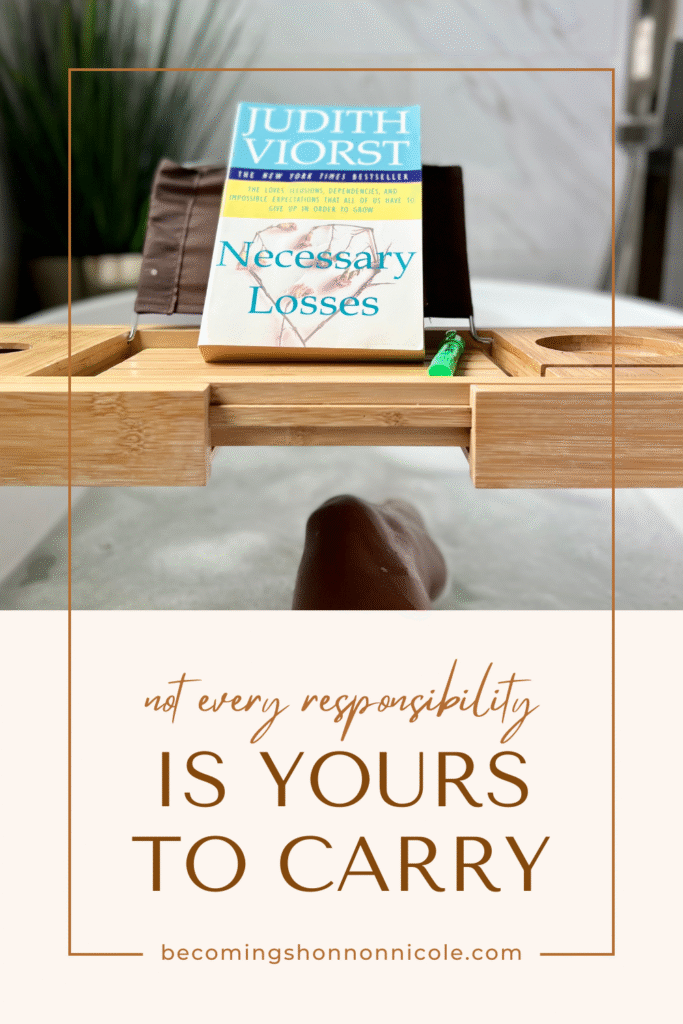When Someone’s Self-Deception Becomes Your Burden
I used to think lies were always intentional.
But what I’ve learned—especially through painful, confusing relationship patterns—is that some of the most damaging lies don’t start with malice. They start with someone lying to themselves.
They convince themselves that they’re emotionally mature. That they communicate well. That they’re ready for real connection.
And because they believe it, they present that version to you.
And naturally, you believe it too.
But here’s the hard part:
When reality no longer matches that illusion—when the mask slips and the performance can’t be maintained—you’re left holding the pieces of a promise they never had the capacity to keep.
And somehow, you end up being the one blamed. For expecting too much. For asking them to show up as the person they claimed they were.
Watch the Full Video:
“They Lied to Themselves First—And I Paid the Price”
Inspired by Necessary Losses by Judith Viorst
Let’s Talk About Emotional Résumés
In the video, I share a metaphor that came to me during reflection:
It’s like someone applying for a job they’re not qualified for.
They check every box on the application: “Emotionally intelligent.” “Self-aware.” “Great communicator.”
They pass the interview because they believe they are those things—or at least, they’re trying really hard to be.
But three to six months in, when they’re drowning under the weight of what they promised to deliver, they get upset that you’re expecting them to do the job.
You weren’t wrong for believing them.
You weren’t asking for too much.
You were simply responding to the version of them they asked you to trust.
And while that may not be manipulation in the traditional sense, the result feels the same: disappointment, confusion, and betrayal.
Healing from the Illusion
This lesson cracked me wide open while reading Necessary Losses by Judith Viorst—a book that explores the inevitable grief we face when we let go of our illusions, attachments, and versions of life that were never quite real.
It reminded me that not all losses are physical.
Sometimes, the deepest grief comes from mourning what we thought we had.
And for me, it wasn’t just about what I thought they were.
It was also about what I thought I had to do to keep the relationship alive.
I let their unspoken shame—the shame of not being who they said they were—guilt me into giving them more chances than I should have.
I kept turning inward, combing through myself for faults to fix, thinking maybe if I just do more work on myself, this will make sense.
And yes, there were things I needed to work on—but I was also taking on emotional labor that was never mine to carry.
I had to step back completely. Distance myself.
Only then could I see clearly what was actually mine to heal… and what was never my responsibility to begin with.
When you realize someone never truly had the emotional capacity they advertised…
When you finally admit they were loving you from their potential, not their present…
It hurts.
But it also frees you.
Because you no longer have to carry the burden of their illusion.
Journal With Me
If this resonates, take a few moments to sit with these questions:
- When have I trusted someone based on who they wanted to be, rather than who they actually were?
- Have I ever sold an idealized version of myself out of fear that the real me wouldn’t be enough?
- Where can I stop expecting others to fulfill a role they never had the capacity for in the first place?
Keep the Conversation Going
Want more real talk like this? Subscribe to my YouTube Channel or sign up for my newsletter here.
Know someone who’s navigating this too? Share this post with them—you never know whose heart it might free.
And don’t forget to pin this post to come back to later.


Ready to Start Over—But From Alignment This Time?
Download the free Aligned Restart Journal
A soul-led guide for women ready to begin again with clarity, courage, and confidence.
